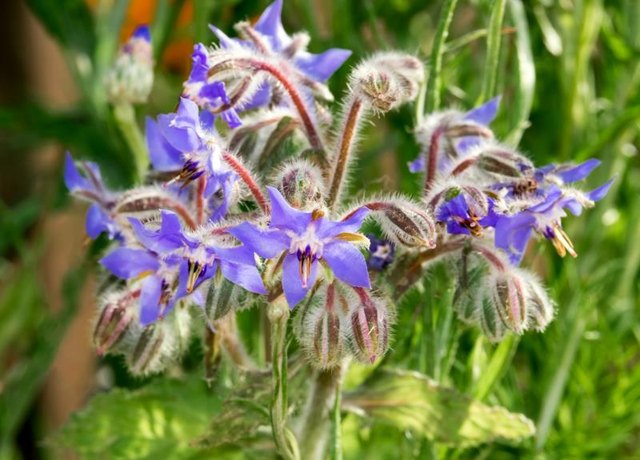Black currant seed oil and borage seed oil are both rich sources of gamma-linolenic acid--GLA--which is an omega-6 fatty acid. GLA contains eicosanoids, which are substances that have anti-inflammatory and hormone-like properties. Although your body can create GLA from foods in your diet, most of us don't effectively utilize the nutrients necessary to manufacture a healthy amount of GLA. Therefore, supplementing your diet with a high-quality GLA supplement, such as black currant or borage oil, may provide you with a number of health benefits, although more research needs to be done before these claims can be verified. Consult with your health care provider before using black currant or borage oil supplements.

Black Currant
Black currant, or Ribes nigrum, is a shrub with small, dark-colored berries that are commonly used medicinally. Historically the Europeans used this plant to treat diarrhea, arthritis and rheumatic pain, and as a diuretic. Manufacturers extract the oil from black currant seeds, which are the second richest source of GLA, next to borage seeds.
Black Currant Oil Benefits
The high GLA content in black currant seed oil makes it beneficial for a number of health issues. According to Vitalnutrients.net, black currant oil may help strengthen your immune system, improve symptoms of rheumatoid arthritis, reduce blood vessel constriction, strengthen your cardiovascular system and reduce inflammatory skin conditions. The hormone-like properties of GLA in black currant seed oil may also improve certain female conditions such as menopause and PMS. Consult your health care provider before using black currant oil for any condition.
Borage
Borage, also known as starflower, has long historical use as a culinary and medicinal herb. This annual plant originates from Syria and is a common garden plant. Borage has been used in the culinary world as a herb for soups, salads, sauces, pickling spices and honey. Today borage is most commonly harvested for its seeds, which contain the richest source of GLA--approximately 20 to 26 percent.
Borage Oil Benefits
According to Share Guide, the GLA in borage oil is converted into prostaglandin E1 in the body. This hormone-like substance can help control your immune system and regulate inflammatory responses. Borage oil may also contribute to kidney health and reduce symptoms associated with arthritis and allergies. The prostaglandin E1 produced from GLA can strengthen your cardiovascular system; it may help tone your arterial muscles, thin your blood and dilate your blood vessels, thereby helping to lower your blood pressure. Furthermore, the GLA in borage oil may reduce PMS symptoms and improve breast pain and tenderness. Borage may also benefit your skin and treat conditions such as eczema and psoriasis as well as improve the health of your nails and hair. Consult your health care provider before using borage oil for any condition.
www.livestrong.com





No comments:
Post a Comment